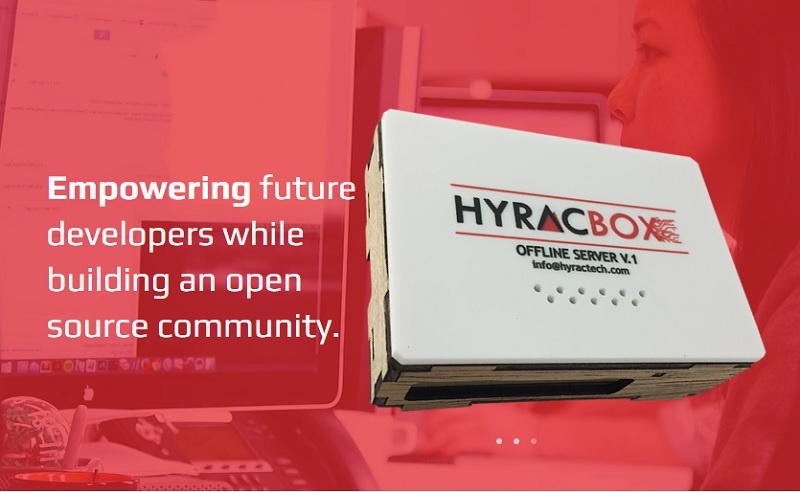Kenyan startup Hyrac Tech is bridging the connectivity gap with a mobile server that delivers internet resources to previously-offline communities.
Launched at the beginning of 2017, the Nakuru-based Hyrac Tech was formed in order to empower communities and organisations with the resources they need to succeed in the digital era.
“Our focus is to ensure that we bridge the gap for the people who have limited or no access to the internet,” Steve Aura, the startup’s co-founder, told Disrupt Africa.
Getting people online in the first place is key, and with that in mind the company has built the Hyrac Box, a mobile server that delivers internet resources in an offline setting. A hardware solution, it allows users to connect to that device offline via Wi-Fi on phone, tablet or computer, and experience online resources.
“It works the same way as a regular server, but offline. This means users can upload and download information, take tests, quizzes, share files with a teacher…” Aura said.
“We have also made our Hyrac Box work as a platform, which means users can use WordPress or Moodle offline to add in custom material.”
Right now, Hyrac Tech is working with schools in Nakuru to provide the entire Kenyan education curriculum for primary and secondary students offline, as well as a host of STEM education material.
“We have also recently started working with refugee camps, which are using the device to share valuable information about women’s health. They normally have workshops, where people have phones but no internet access. So the refugee directors use our mobile server to distribute information offline,” said Aura.
Having only started closed testing last year, Hyrac has already worked with 14 organisations and over 1,000 end-users, and plans to launch at scale in 2020. There is certainly an addressable market for such a solution.
“There are about four billion people across the world who are not connected to the internet or have limited access. We are working to bridge this gap by providing people with offline solutions so they can also enjoy the same benefits as the people who are connected,” said Aura.
The self-funded company, which has already worked with organisations in Uganda, Ghana and South Sudan, is for now focusing on expanding its work in refugee camps, where access to education is limited, but Aura said there are wider applications.
“Hyrac Box is a platform, and our expansion plan is to empower NGOs, businesses and entrepreneurs to use the box to build solutions that impact their demographics that are mostly offline,” he said.
The startup sells the boxes for a fee, and also offering paid consulting services on implementing and making the best use of the platform. Aura said the major challenge thus far has been gaining access to the relevant content that best suits the needs of its various target groups.
“Since it is a new concept to a lot of our users, some expect us to already have content that will directly solve their needs,” he said.
“We hope in future to bridge this gap by involving the target groups more, in order for them to help with developing and sorting relevant content. We are also raising more awareness about offline technology and the fact that it is a platform and users can add their own content to the platform.”


